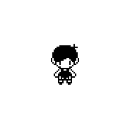Find three of the holiday activities from exercise 4 in the dialogue in exercise 2.

Những câu hỏi liên quan
Exercise 4: Study the Key Phrases. Then complete the mini-dialogue. Use some of the ideas from the Family Fun Day programme in exercise 1.(Nghiên cứu Key Phrases. Sau đó hoàn thành đoạn hội thoại ngắn. Sử dụng các ý tưởng từ chương tringf Family Fun Day ở bài 1.)A: Its Family Fun Day at the school on Saturday. What do you……………….. ?B: I like the………………..of the……………….. .A: Right, and what about the……………….. ?B: OK. Lets go to the.……………….. and the……………….. .KEY PHRASESMaking plans and suggestionsWhats...
Đọc tiếp
Exercise 4: Study the Key Phrases. Then complete the mini-dialogue. Use some of the ideas from the Family Fun Day programme in exercise 1.
(Nghiên cứu Key Phrases. Sau đó hoàn thành đoạn hội thoại ngắn. Sử dụng các ý tưởng từ chương tringf Family Fun Day ở bài 1.)
A: It's Family Fun Day at the school on Saturday. What do you……………….. ?
B: I like the………………..of the……………….. .
A: Right, and what about the……………….. ?
B: OK. Let's go to the.……………….. and the……………….. .
KEY PHRASES |
Making plans and suggestions What's on? What do you want to do / see? I'm not really interested in (the)... . I like the sound of (the) ... . What about (the)... ? Let's go to (the) ... . |
A: It's Family Fun Day at the school on Saturday. What do you want do do?
B: I like the family sports and face paiting.
A: Right, and what about the costume competition?
B: OK. Let's go to the costume competition and the mini zoo. Then we can watch fireworks in the evening.
Đúng 0
Bình luận (0)
Tạm dịch:
A: Đó là Ngày Gia đình Vui vẻ tại trường vào Thứ Bảy. Bạn muốn làm gì?
B: Mình thích các môn thể thao gia đình và vẽ khuôn mặt.
A: Được, còn phần thi trang phục thì sao?
B: Đồng ý. Hãy đến với phần thi hóa trang và vườn thú nhỏ xinh. Sau đó, chúng ta có thể ngắm pháo hoa vào buổi tối.
Đúng 0
Bình luận (0)
Read the Learn this! Box. Find five stative verbs in the dialogue in exercise 2. How do you know they are stative verbs?
Five stative verbs in the dialogue in exercise 2: like, need, know, remember, mind.
(Năm động từ trạng thái trong đoạn hội thoại ở bài tập 2: like, need, know, memory, mind.)
I know they are stative verbs because they describe states or situations and are not used in continuous tenses.
(Tôi biết chúng là động từ trạng thái vì chúng mô tả trạng thái hoặc tình huống và không được sử dụng trong các thì tiếp diễn.)
Đúng 0
Bình luận (0)
SPEAKING Work in pairs. Find out your partner's preferences for the shows in exercise 1 and other types of shows you can think of. Use phrases from exercise 4 and Speaking Strategy 2 in your answers.
A: What do you think of art exhibitions?
B: I absolutely love them. / To be blunt, I'm not really into them.
Bài tham khảo
A: What do you think of the musical in Picture A?
B: To be honest, I'm not a big fan of musicals.
A: How about the magic show in Picture B?
B: Personally, I really enjoy magic shows.
A: What do you think of stand-up comedy performances like the one in Picture C?
B: I must say, I'm really keen on stand-up comedy. I find it really entertaining.
Tạm dịch
A: Bạn nghĩ gì về vở nhạc kịch trong Hình A?
B: Thành thật mà nói, tôi không phải là một fan hâm mộ lớn của nhạc kịch.
A: Thế còn màn ảo thuật trong Hình B thì sao?
B: Cá nhân tôi thực sự thích các buổi biểu diễn ảo thuật.
A: Bạn nghĩ gì về những màn biểu diễn hài độc thoại như trong Hình C?
B: Tôi phải nói rằng, tôi thực sự thích diễn hài độc thoại. Tôi thấy nó thực sự thú vị.
Đúng 0
Bình luận (0)
VOCABULARY Look at the adjectives below. Underline five of them in the dialogue in exercise 2.Adjectives describing feelings:anxiousashamedboredconfusedcrossdelighteddisappointed embarrassed enviousfrightened proud relievedshockedsuspicious terrifiedupset
Đọc tiếp
VOCABULARY Look at the adjectives below. Underline five of them in the dialogue in exercise 2.
Adjectives describing feelings:
anxious | ashamed | bored | confused | cross | delighted |
disappointed | embarrassed | envious | frightened | proud |
|
relieved | shocked | suspicious | terrified | upset |
1. excited
2. anxious
3. frightened
4. upset
5. terrified
Đúng 0
Bình luận (0)
Work in pairs. Prepare to do the task in exercise 3.
- Choose three activities that you would like to do using the list in exercise 1 or your own ideas. Make sure you and your partner choose different activities.
- Make notes about:
a. why you want to do the activities you have chosen.
b. why you do not want to do the activities your partner has chosen.
My three activities: surfing, climbing, kayaking
(Ba hoạt động của tôi: lướt sóng, leo núi, chèo thuyền kayak)
My partner’s three activities: hiking, hang-gliding, mountain biking
(Ba hoạt động của đối tác của tôi: đi bộ đường dài, đi tàu lượn, đạp xe leo núi)
a. why you want to do the activities you have chosen.
(tại sao bạn muốn thực hiện các hoạt động bạn đã chọn.)
- suitable location.
(vị trí phù hợp.)
- enjoy new feelings on the water.
(tận hưởng cảm giác mới lạ trên mặt nước.)
- beautiful view on the top of a mountain.
(góc ngắm cảnh đẹp trên đỉnh núi.)
b. why you do not want to do the activities your partner has chosen.
(tại sao bạn không muốn thực hiện các hoạt động mà đối tác của bạn đã chọn.)
- have to walk long distances.
(phải đi bộ đường dài.)
- have to buy special equipment.
(phải mua thiết bị đặc biệt.)
- it’s tiring.
(nó mệt mỏi.)
Đúng 0
Bình luận (0)
USE IT! Work in pairs. Read the situation, prepare and practise a new dialogue. Use the key phrases and the dialogue in exercise 1 to help you.Student A: Ask your partner what the problem is: he/she looks tired. Listen, find out some more information, then offer some advice.Student B: Youre not sleeping well and youre always tired. Youre worried that your school work is getting worse. You listen to music and text your friends when you should be asleep.
Đọc tiếp
USE IT! Work in pairs. Read the situation, prepare and practise a new dialogue. Use the key phrases and the dialogue in exercise 1 to help you.
Student A: Ask your partner what the problem is: he/she looks tired. Listen, find out some more information, then offer some advice.
Student B: You're not sleeping well and you're always tired. You're worried that your school work is getting worse. You listen to music and text your friends when you should be asleep.
Student A: Ask your partner what the problem is: he / she looks tired. Listen, find out some more information, then offer some advice.
A: Hi, B. Is anything the matter? You look really tired.
B: I'm really concerned about the English course I’m doing. It’s too difficult.
A: Have you spoken to your teachers about it?
B: No. I'm so worried, I haven't told my teacher about it.
A: My advice is to get help now. If you don't, things will only get worse
B: I don’t know what to do.
A: Don’t panic. But you need to speak to someone about it.
B: You're right . I'll go and talk to my teacher now. Thanks, A.
A: No problem.
Student B: You’re not sleeping well and you're always tired. You're worried that your school work is getting worse. You listen to music and text your friends when you should be asleep.
A: Hi, B. Is anything the matter? You look really tired.
B: I'm not sleeping well and I'm always tired.
A: What happened?
B: No. I'm worried about school work is getting worse. I listen to music and text my friends when I'm asleep.
A: My advice is you should go to bed earlier and stay away from your electronic devices.
B: You're right . I'll try to go to bed early. Thanks, A.
A: No problem.
Đúng 1
Bình luận (0)
Read the learn this! box. Underline an affirmative, a negative and an interrogative example of used to in the dialogue in exercise 1.
Grandad: Have you seen this photo of me when I was your age?
James: No. I haven't. Let me see. Wow! You used to have great hair!
Grandad: I know, I used to spend ages getting it just right. It's much quicker now.
James: Your clothes look cool too. Did you use to spend a lot of money on them?
Grandad: I didn't use to have much money. My mother made some of them. And l used to share clothes with my brother.
James: I used to do that too. But he doesn't let me borrow them now!
- Câu ví dụ khẳng định với “used to”:
You used to have great hair!
(Ông đã từng có mái tóc tuyệt vời!)
- Câu ví dụ phủ định với “used to”:
I didn't use to have much money.
(Ông đã từng không có nhiều tiền.)
- Câu ví dụ nghi vấn với “used to”:
Did you use to spend a lot of money on them?
(Ông đã từng chi tiêu rất nhiều tiền cho chúng đúng không?)
Đúng 0
Bình luận (0)
Exercise 4: Make questions1. It is about three kilometres from my house to the nearest town.……………………………………………………………………………………………………………………………………………………………2. There are often traffic jams in the city centre in the rush hour.……………………………………………………………………………………………………………………………………………………………HELPS MEEE!! THANK YOU
Đọc tiếp
Exercise 4: Make questions
1. It is about three kilometres from my house to the nearest town.
……………………………………………………………………………………………………………………………………………………………
2. There are often traffic jams in the city centre in the rush hour.
……………………………………………………………………………………………………………………………………………………………
HELPS MEEE!! THANK YOU
How far is it from your house to the nearest town ?
When are there often traffic jams in the city centre?
Đúng 1
Bình luận (0)
1, How far is it from your house to the nearest town?
2, When are there often traffic jams in the city centre?
Đúng 2
Bình luận (0)
1. It is about three kilometres from my house to the nearest town.
How far is it from your house to the nearest town ?………………………………………………………………………
2. There are often traffic jams in the city centre in the rush hour.
When are there often traffic jams in the city centre?…………………………………………………………
Đúng 2
Bình luận (0)
Xem thêm câu trả lời
complete the Learn this!box with the two missing object pronouns from the dialogue in exercise 1
dịch dùm mình với
Hoàn thành việc tìm hiểu điều này! Hộp với hai đại từ đối tượng bị mất tích từ các cuộc đối thoại trong bài tập 1
Đúng 0
Bình luận (0)
















